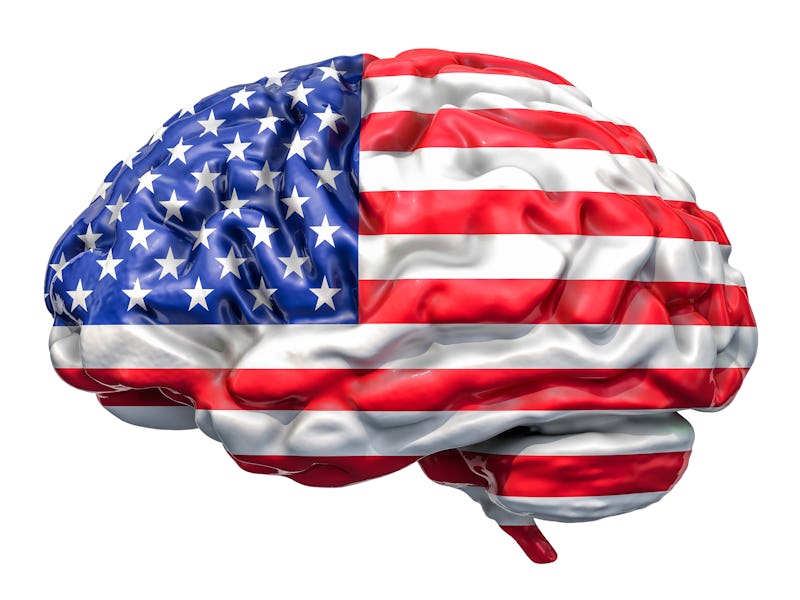5 rules of recovery for a post-election mind
Rule #5: Don't bend the rules.

November marks the beginning of a three-month sprint of celebrations, including the winter holidays and — depending on how you voted — the election. But the highs associated with this season aren’t universally experienced, and can even be dangerous for some.
The holidays are understood to put people who experience addiction at risk of relapse. Strong emotions tied to the season, encountering family, and a culture that pairs celebration with libation can act as triggers. In search of a pressure release, many turn to old habits or go deeper into current ones.
Steven Melemis, an emeritus physician and expert in addiction medicine, tells Inverse that people use drugs or alcohol to escape, relax, or reward themselves.
“An election could be a trigger,” Melemis says. “But people relapse because they have broken one of the five rules of recovery.”
Understanding these rules, he explains, can help people focus on what is important. They are:
- Change your life.
- Be completely honest.
- Ask for help.
- Practice self-care.
- Don’t bend the rules.
The main tools of relapse prevention, and the tools that can keep one following the rules, are cognitive therapy and mind-body relaxation, Melemis says. Cognitive therapy helps people change negative thinking and develop healthy coping skills; it challenges the all-or-nothing attitude that often underlies addictive thinking. It’s an involved process, and it takes time.
Melemis notes that a person’s initial thought can be: This is scary. I don’t know if I can do it. I have failed before.
“Cognitive therapy can help to put those fears in perspective and help you develop more balanced thoughts, and self-help groups such as AA can help show you that other people have had the same feathers and overcome them,” he says.
Mind-body relaxation is an interesting prompt because it’s a step that can begin immediately and it underlies a branch of addiction therapy called mindfulness-based relapse prevention (MBRP). It’s also where self-care comes in.
Melemis recommends practicing self-care with good sleeping and eating habits, and some form of mind-body relaxation such as yoga, meditation, tai chi, or going for a walk.
MBRP is a more formal approach and can take the form of learning various practices and skills and putting those into action with the help of an expert. Its three foundational principles are a marriage of Melemis’ rules: MBRP emphasizes being aware of the present, shifting from an avoidance-based to an approach-based relationship to trigger stimuli, and practicing kindness and self-care.
It can be easy to shrug off these findings, especially in moments where things seem to be going so well. However, Melemis cites research demonstrating that it is this type of thinking that can cause relapse in the “growth stage of recovery” — a stage complete with people who have combatted relapse for a long time. It’s important to note that relapse is a gradual process with distinct stages, and each stage has its own risks.
In the “growth” stage those risks can include but are not limited to, focusing less on self-care as life improves, thinking one has a better understanding of drugs and alcohol so they should have more control, and thinking the addiction part of their life is over.
One’s brain isn’t necessarily on the same page, however. Studies indicate that the brains of people who regularly drink have a “cognitive bias” to alcohol cues, like social situations, places, and smells. This bias captures the attention of the subconscious and can drive addictive impulses. The brain, in turn, changes with addiction.
This brings us back to the rules — and the new wave of recovery strategies that prioritize reflection, kindness to the self, and non-judgmental present-centered attention to how one is experiencing life. Relapse is something that happens gradually; it can begin months before someone picks up a drink. One’s mind, research suggests, can take the form of both investigator and mechanic, and it’s this mix of honest probing and strategy that can prepare one for the challenge.
Do you struggle with addiction? Call SAMHSA's free 24-hour Disaster Distress Helpline at 1-800-985-5990 if you feel lonely or need support.
This article was originally published on